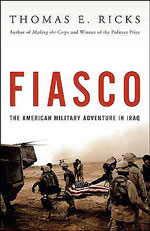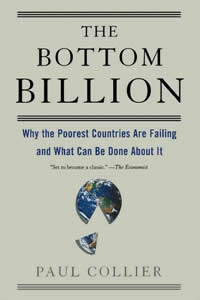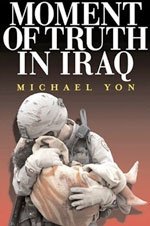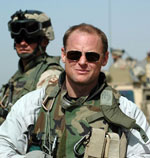
In addition to original interviews with military and civilian officials, Ricks draws on a vast amount of source material–countless internal military reports and studies; diaries, letters, and blog posts of soldiers; official combat histories of the military units; and practically anything else that was written about Iraq. The amount of research and reporting is overwhelming. If you want to understand the early years of the Iraq war, this is the book for you. Until somebody writes a better one.
The most interesting parts, to me, involved candid, real-time words from troops on the ground. We see their professionalism, their extreme competency as a fighting force (as in the section about the invasion). We also see their frustrations with the inadequate planning, the insufficient resources, and the lack of manpower from Day One.
I hate the title. Way too agendish. And yet, by the time I reached the end, I realized it was a pretty accurate description of the war up to 2005. Things were a royal mess, and Ricks tells why. Almost everything points right back to the lack of planning, and the insistence by Don Rumsfield and his deputies that Iraq would be a walk in the park (despite warnings from the military).
The lead-up to the war was truly a joke. Don Rumsfield continually thwarted the military’s attempts to bring sufficient troops. His agenda was to disprove the Powell Doctrine of overwhelming force, showing that we could conquer Iraq with a relatively small force. The military, looking beyond to the occupation, wanted at least 250,000 troops, but Rumsfield’s initial proposal called for just 10,000 troops. The Generals repeatedly warned him beforehand that we would need a huge presence to occupy the country. And since we didn’t, the country descended into looting and chaos. Rumsfield proved his point, at the expense of years of conflict and thousands of lives.
Ricks documents how a number of Bush Administration people, especially around Cheney and Rumsfield, were determined to get us into a war with Iraq, and readily disregarded any arguments against doing so. The frustrated military got the message that it didn’t matter what they had to say–we were going to invade Iraq one way or the other. And even upon realizing they would be fighting a war, they weren’t allowed to adequately prepare for it.
Ricks goes behind doors to all kinds of meetings, delves into numerous military studies, and eavesdrops on conversations between military men who can’t believe what’s happening.
The military knew what needed to be done. The knowledge was there, not only for taking the country but for occupying it and stamping out any insurgency. Bush himself kept his hands off, fully trusting his generals. But Rumsfield continually over-ruled the military leaders.
We also see how the people around Rumsfield were in love with Ahmed Chalabi, the crooked Iraq ex-pat whose falsehoods propelled us into the war, and whom the CIA always knew was in Iran’s pocket.
We see General Tommy Franks, having conquered the country, become disengaged at a crucial time as he prepares to retire soon after taking Baghdad.
Paul Bremer, the civilian put in charge of the occupation, was a disaster. The Iraqi military consisted of men accustomed to discipline and taking orders. They could have been a huge asset. Instead, Bremer disbanded the military, putting tens of thousands of young men out of work and fueling an insurgency. As if that wasn’t enough, he decided that any members of the Ba’ath party couldn’t hold government jobs. So all the people who knew how to keep the country running–civil servants, school administrators, you name it–were left unemployed and told, “You don’t have a role in Iraq’s future.” More recruits for al Qaeda. Bremer did other stupid, stupid things which had the effect of pushing Iraq further into bloodshed and instability. And yet, GW Bush still awarded him the Medal of Freedom. Go figure.
Ricks deals with the mass detainment of Iraqis, which culminated in Abu Ghraib and torture. We see General David Petraus in the early days of the occupation, when he commanded the 101st Airborne in Mosul. His strategy in pacifying his part of Iraq is contrasted with the brute-force tactics of General Odierno and the 4th Infantry Division, which continually knocked down doors in the middle of the night, violated all kinds of Islamic cultural norms, and indiscriminately rounded up large numbers of Iraqi men of all ages. They didn’t bother trying to sort out the good from the bad, as Petraus did, but just sent them all to Abu Ghraib, flooding the system with lots of innocent people.
I was fascinated by Ricks’ account of the two battles for Fallujah–first in the spring of 2004 (called off by civilian leaders just short of victory), and then again in the fall after insurgents had had a chance to heavily fortify the city. That second battle is regarded as the most fierce combat the US military has experienced since the Vietnam War. The taking of Tal Afar was also fascinating. Brilliant strategic thinking.
You get the impression that we would be much, much better off if the civilian leaders had stayed out of it, had just let the military develop all the plans for conquering and occupying Iraq.
The book ends with the war going badly, with Shiites running rampant in torturing and killing Sunnis, and Sunnis and Al Qaeda killing indiscriminately. The “fiasco” is in full bloom. But changes are on the horizon. We see David Petraus and a new team beginning to take shape, and preparations being made for this thing called “the surge.” Ricks deals with that in his second book, “The Gamble.”


 “The Bottom Billion” is a fascinating study of the poorest countries in the world. Paul Collier, a former official with the World Bank, is one of the world’s leading experts on African economies. He has worked with, and studied, the dynamics that keep a country down.
“The Bottom Billion” is a fascinating study of the poorest countries in the world. Paul Collier, a former official with the World Bank, is one of the world’s leading experts on African economies. He has worked with, and studied, the dynamics that keep a country down. After taking command in 2007, General David Petraus wrote a letter on “Values” to all of his soldiers.
After taking command in 2007, General David Petraus wrote a letter on “Values” to all of his soldiers.  Yon (left) superbly pictures the principles of counter-insurgency in action. You really need to see these principles lived out to appreciate them. Thomas Ricks talks about counter-insurgency theory in “Fiasco,” which ends just as David Petraus is taking over, and he describes a couple major success stories–one in 2003 when Petraus commanded the 101st Airborne in Mosul, and then later in Tal Afar (both of which were basically rogue operations by individual commanders who “got it”). But counter-insurgency principles permeate Yon’s book, and you can’t help but realize, “We should have been doing this all along.” Yon, as a Green Beret, was trained in these principles, so he understands what he’s looking at.
Yon (left) superbly pictures the principles of counter-insurgency in action. You really need to see these principles lived out to appreciate them. Thomas Ricks talks about counter-insurgency theory in “Fiasco,” which ends just as David Petraus is taking over, and he describes a couple major success stories–one in 2003 when Petraus commanded the 101st Airborne in Mosul, and then later in Tal Afar (both of which were basically rogue operations by individual commanders who “got it”). But counter-insurgency principles permeate Yon’s book, and you can’t help but realize, “We should have been doing this all along.” Yon, as a Green Beret, was trained in these principles, so he understands what he’s looking at.
 I gotta agree with Chief Justice John Roberts in regard to the State of the Union Address–how it’s become a political pep rally. The justices sit there surrounded by hooting and hollering Congressmen, and are by tradition expected to remain stone-faced, expressionless–even as the President criticizes them for a recent decision.
I gotta agree with Chief Justice John Roberts in regard to the State of the Union Address–how it’s become a political pep rally. The justices sit there surrounded by hooting and hollering Congressmen, and are by tradition expected to remain stone-faced, expressionless–even as the President criticizes them for a recent decision. 


